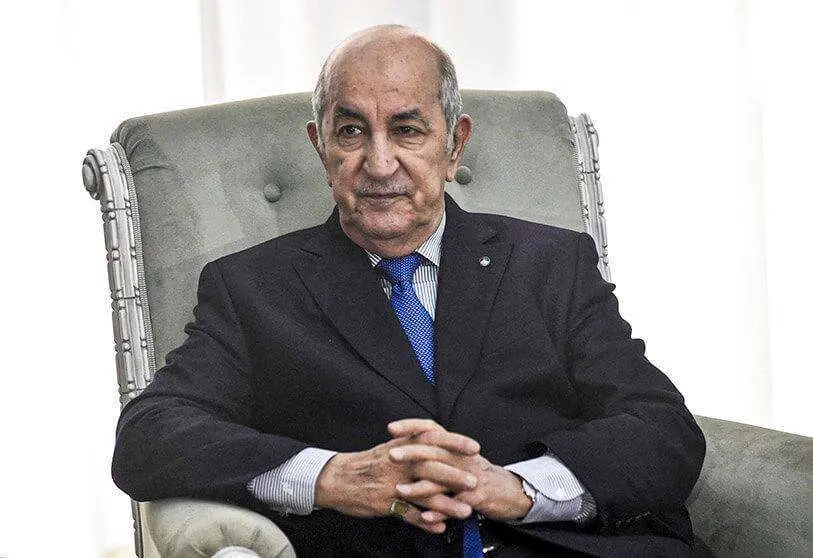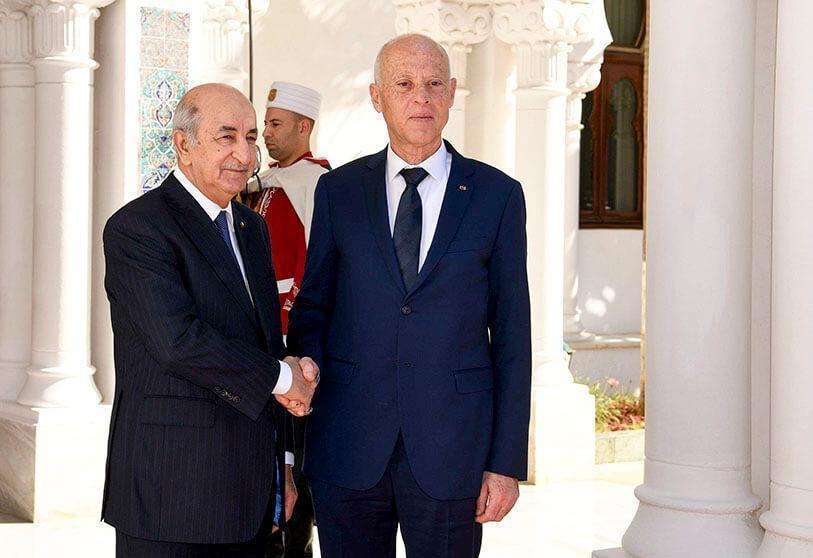Algeria delays border opening with Tunisia and threatens to cut gas supplies

Algeria is postponing the opening of its borders with neighbouring Tunisia, something that Tunisian political circles view with concern. At a time when the COVID-19 pandemic is beginning to stabilise and countries are already enjoying, at the international level, the reopening of borders, Algeria is reluctant to take the step with its North African neighbours.
According to Tunisian sources, this decision to prolong the border closure is politically motivated. The Algerian government has tried to create regional alliances with Tunisia, but the latter has rejected them after assuring the Algerians that its real concern is to strengthen direct diplomatic relations between Tunisia and Algeria at the official level, something that Algeria has not accepted due to the ambiguity shown by Tunisian President Kais Saied regarding his position on the Western Sahara issue.

They claim that Algeria is taking advantage of the current difficult situation of the Tunisian economy as a "pressure card" against Saied, indicating that the closure of the borders means that Tunisia will immediately benefit from the visit of Algerian tourists during the tourist season.
According to observers, the aim of this closure is to "create an atmosphere of social tension against President Saied", especially in these border areas.

All this comes at a time when Algeria is planning to reduce its gas exports to Tunisia. Tunisia, which is 70% dependent on Algerian natural gas, could be seriously affected by this reduction, especially now that Algeria has agreed with Italy to increase its gas purchases by 40 % in order to reduce its dependence on Moscow.
In this respect, the secretary general of the University of Electricity and Gas of the Tunisian General Workers' Union, Abdelkader Jelassi, warned that Tunisia "will not be able to produce electricity", given Algeria's possible refusal to supply gas to Tunisia, describing the situation as "catastrophic".

Tunisian analyst Mohamed Dhouib told Al-Arab that 'Algeria, despite initially supporting Kais Saied' when he staged a coup "then distanced itself and began to change its position on what is happening in the country. Moreover, the agreements between the two countries have not been implemented", he denounces.
He thus reiterates the importance of 'diplomatic contacts between the two countries in the coming days to avoid problems', especially 'as they have no choice but consensus, convergence of views and joint cooperation in the light of a comprehensive mutual agreement' after the health crisis, the ongoing war in Ukraine and the critical situation in Libya.
In earlier statements, Algerian President Abdelmadjid Tebboune indicated that he was willing to 'strengthen bilateral cooperation between the two countries in various fields', but international analysts are sceptical about this rapprochement.

This estrangement between the two countries is unusual. Generally speaking, relations between Algeria and Tunisia have so far been homogenous. The two Maghreb countries have always agreed on Euro-Maghreb diplomacy, including support for Palestine, among other pan-Arab issues.
Since Kais Saied dissolved parliament to assume 'full powers' under his person, the Tunisian president has fostered a diplomacy that not only includes Algeria and Libya, but has increasingly moved closer to Egypt and its president, Abdel Fattah al-Sisi.
This rapprochement, which has been fostered by the hostility of both the Tunisian and Egyptian presidents towards Islamist parties, has helped the two countries to consolidate agreements on Arab policies.

In one meeting, Saied received Egyptian Prime Minister Moustafa Madbouli. In it, Saied noted that al-Sisi had "saved Egypt from a very dangerous period. President al-Sisi has shortened the deadlines and saved the Egyptian people a lot of time," he said, after al-Sisi executed a coup against the Islamist government of Mohamed Morsi.
Tunisia has also reportedly been making diplomatic overtures to the United Arab Emirates and Saudi Arabia, which worries Algiers. In addition, Tunisia took the initiative at the UN Security Council to table a motion that, when passed, condemned Ethiopia's filling of the Renaissance Dam (GERD), a decision that Ethiopian Foreign Minister Demeke Mekonnen called "a mistake that will tarnish Tunisia's mandate as a non-permanent member of the Security Council". This position was welcomed by Egypt, unlike Algeria, Ethiopia's ally in the African G4, created after the EU-AU summit, which includes Nigeria and South Africa in addition to these two countries.
Moreover, Saied was one of the only North African presidents to condemn Russia's invasion of Ukraine at the UN. It should be noted that Moscow is one of Algiers' most important allies and there is significant military cooperation between the two countries, at a time when relations between Morocco and Algeria are broken, a situation that has led to an arms race between the two, the former with the support of Washington and the latter with that of Moscow.








